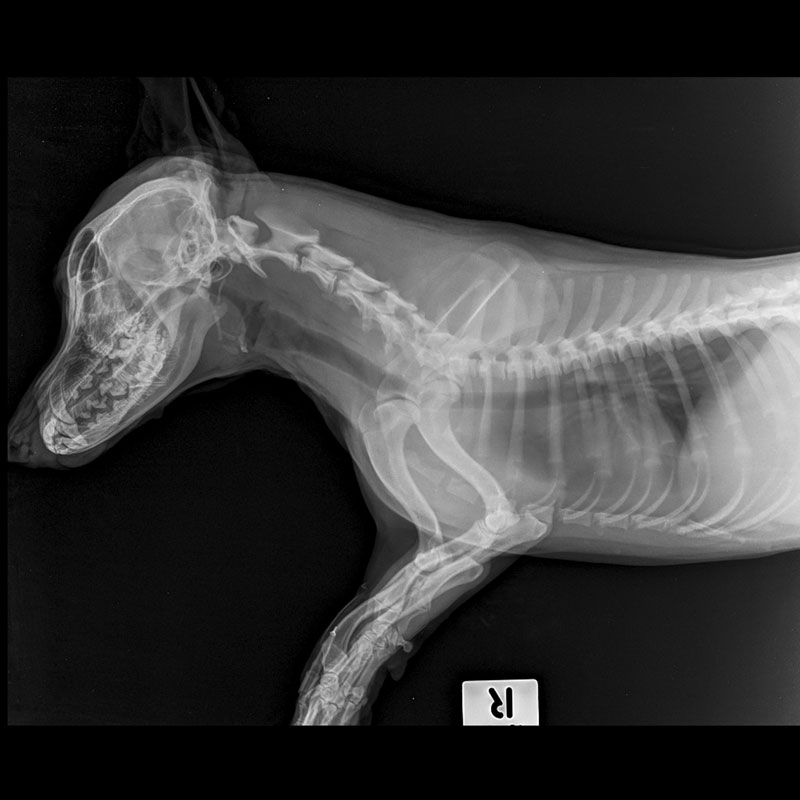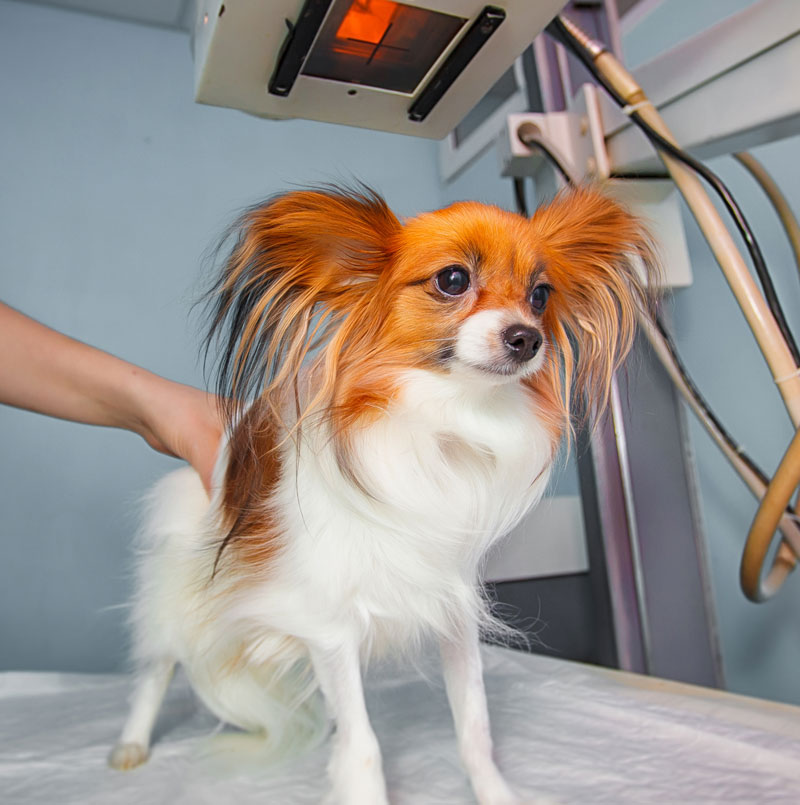Radiology
Belmont Vet Centre is equipped for all the diagnostic tests your pet needs to stay healthy and to help them get better when they’re sick or injured.
If your pet needs a little detective work on what’s bothering them, we’re able to take high-quality digital radiographs (X-rays) including high-quality whole-body x-rays and digital dental x-rays, to conduct an ultrasound or use a CT scanner for those trickier cases – all in-house!
Why does this matter? When a rapid diagnosis is key to getting your pet back on track, we’ve got you covered.

We're fully equipped with the latest technology
Our veterinarians will discuss your pet’s case and conduct a thorough physical examination to determine if your pet requires radiographs. Radiographs are a very important tool to help us diagnose many diseases in animals, particularly for conditions involving bones, chest or abdomen.
Most patients are admitted into the hospital for the day to have radiographs taken unless it is an emergency and we can then take them immediately. We ask that you bring your pet in without breakfast on the morning of admission, as they often need to be sedated or given a light general anaesthetic to allow us to take the best quality radiographs possible without stress to the pet.
Once the radiographs have been taken, we will give you a call or book an appointment for our veterinarians to show you the images and to discuss the diagnosis and treatment plan for your pet.
We can also burn a copy of your X-rays to disk so that you can have your own copy at home for your records.
In some cases, a plain x-ray is unable to give the vets the answers they need and a three-dimensional picture is more valuable, and for this, we recommend a CT Scan. While our scanner is housed off-site (we share ownership) you still bring your pet to the Centre and one of our vets and trained nurses will transport them to the scanner and perform the test and ensure their health and comfort while this is happening. If you’ve ever had a CT scan yourself then you will totally understand that this usually requires a general anaesthetic.
Dental radiology is important as it enables us to see beneath the gums. This is where most problems occur in our patients. 80% of cats and dogs in Australia over 3 years of age have dental disease. All patients having dental treatment of any sort always have their teeth x-rayed to ensure best possible care.
Ever wondered how we peek inside your furry buddy without using X-rays? That’s where ultrasounds step in. Using super high-frequency sound waves a detailed picture of what’s going on inside is created. They are particularly useful for examining internal organs or monitoring pregnancies. Ultrasounds will not usually require anaesthesia however, we may need to trim a little fur to get a clear view!

Common conditions requiring radiography include:
- Bone fractures
- Bone developmental disorders in young animals
- Cruciate ligament ruptures
- Osteoarthritis
- Soft tissue injuries
- Cancer care
- Lung and heart diseases
- Bladder stones
- Gastrointestinal torsions
- Foreign body obstructions
- Coughing
- Vomiting
Common conditions requiring dental radiography include:
- Routine screening for invisible problems in the mouth
- Teeth fractures
- Dental infections
- Soft tissue injuries of the mouth and head
- Sneezing (nose x-rays)
Common conditions requiring CT Scan include:
- Bone fractures
- Soft tissue injuries
- Nasal and skull issues
- Cancer care
- Assessment of abdominal organs
- Lung and heart disease
- Coughing
- Vomiting
We're here for you and your pet
To book an appointment or if you have any questions – please do not hesitate to contact us.

